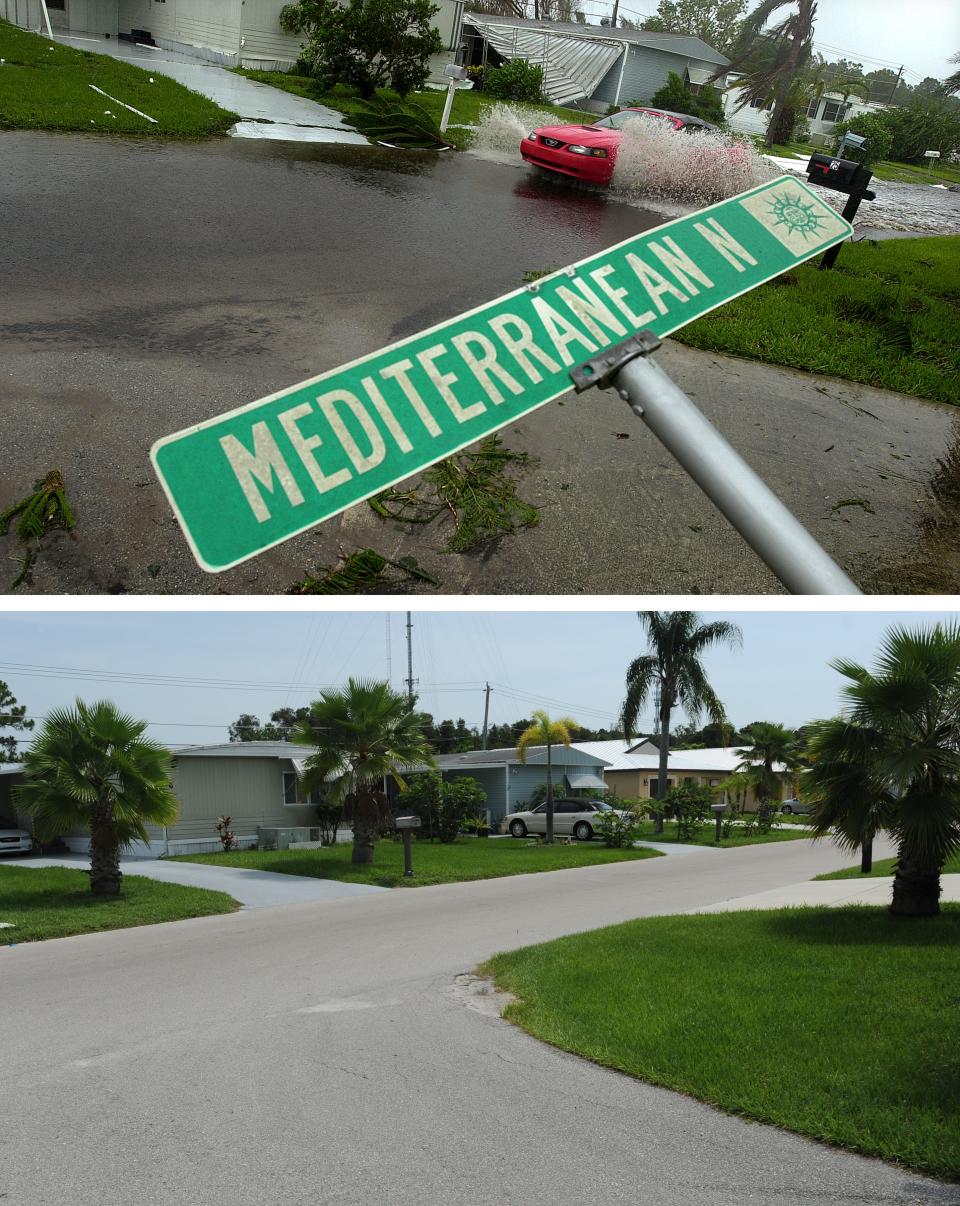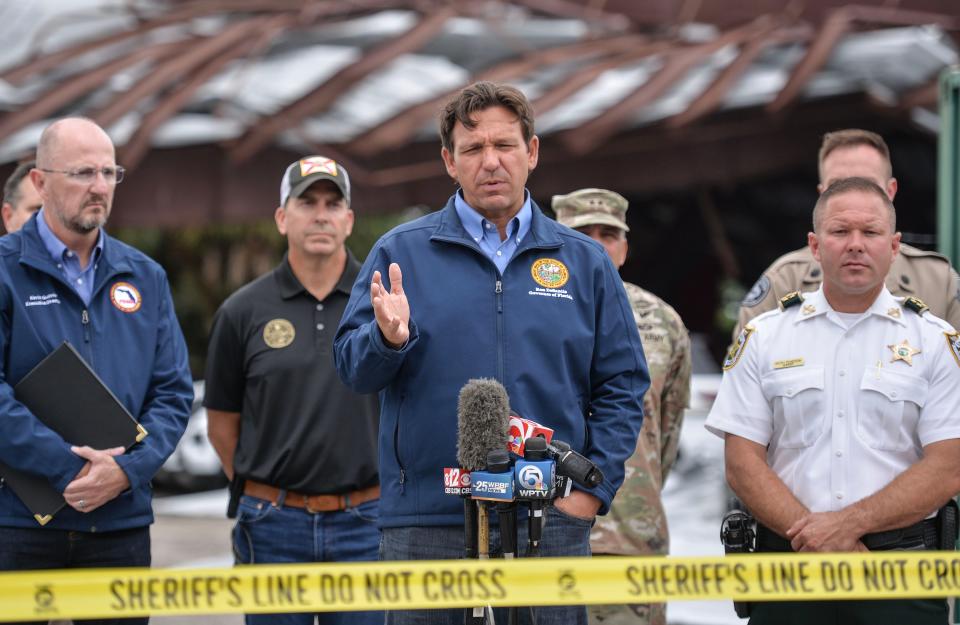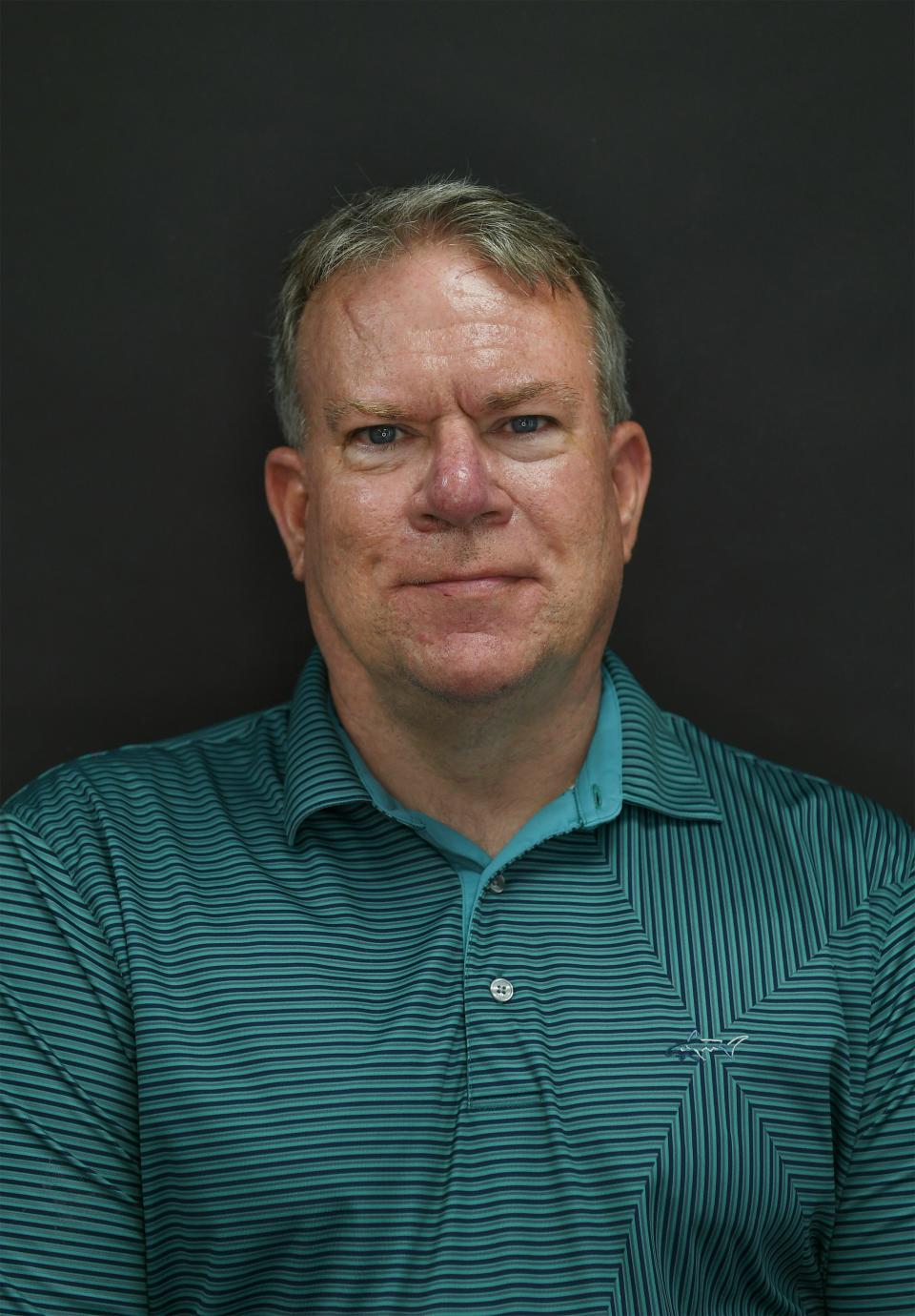How will Hurricane Milton be remembered?
It’s not an easy question to answer, so soon after the storm roared across Florida, leaving a trail of destruction in its wake. On Thursday, Floridians began the difficult tasks of assessing and, where possible, repairing the damage.
There’s been some loss of life ― with at least six people killed by suspected tornadoes in northern St. Lucie County ― with the potential the death toll could climb if more bodies are discovered during post-storm cleanup. There’s also been significant property damage in all three Treasure Coast counties, much of it from tornadic activity that preceded the hurricane’s landfall Wednesday evening.
Did Milton represent something different?
More: Unexpected high winds caught some Causeway Cove Marina boat owners by surprise | Opinion
More: Lessons from Hurricane Ian can help prepare us for the next storm’s arrival | Opinion
More: Indian River Drive took hits from Nicole, but the scenic road remains beautiful | Opinion
Based on early estimates, Milton isn’t likely to be one of the deadliest storms to hit the mainland United States. A hurricane that hit Galveston, Texas in 1900 caused an estimated 8,000 to 12,000 deaths.
Milton may not be one of the most expensive in terms of property damage, either. That dubious record is shared by Hurricane Katrina in 2005 and Hurricane Harvey in 2017, each with an estimated $125 billion in property damage.
Milton could be remembered in a different way, though, if it changes the way people think about hurricanes and their impact on Florida.
There’s no guarantee that will happen. During a news briefing at the St. Lucie County Sheriff’s Office headquarters Thursday, Gov. Ron DeSantis seemed to suggest strong hurricanes are just a fact of life in Florida.
“There’s nothing new under the sun,” DeSantis said. “We’ll deal with these storms as long as we are Floridians.”
DeSantis noted that, going back in time, there have been stronger storms than Milton. He also noted the ebb and flow of hurricane cycles, with some years producing several that make landfall in Florida and other years that produce none at all.
“There’s precedent for all of this in history,” he said.
The difference now, DeSantis said, is government officials are better equipped to respond to hurricanes and other natural disasters when they happen.
Softening the impact of future storms

He wasn’t wrong. But what he said wasn’t the whole truth, either.
Yes, with better equipment and years of experience to draw from, modern first responders can handle major disasters more efficiently and quickly.
What the governor didn’t say was how people living in the modern era can use their better understanding of weather trends to prepare and perhaps soften the effects of disasters in the years ahead.
This isn’t a column about climate change, a subject DeSantis artfully sidestepped during the briefing. It’s about acknowledging our current way of life isn’t sustainable.
Before Milton made landfall, much of the worry was centered on what would happen if the storm struck Tampa Bay, which hadn’t taken a direct hit from a major hurricane since 1921. Back then, Tampa was a city of about 300,000 people. Today, as DeSantis acknowledged at the briefing, it’s part of a metro area that includes 3 million people.
Tampa Bay was spared the brunt of Milton’s impact since the eye of the storm made landfall south of there, but it’s a matter of when, not if, the region will take a direct hit, just as New Orleans did with Katrina.
The official death toll for Katrina was 1,392, making it the deadliest storm since 1950. No matter how good our emergency response equipment is, if we continue to pack more and more people along Florida’s coasts, it’s a matter of time before the Katrina death total gets topped.
It’s also a matter of time before the Treasure Coast takes another direct hit from a storm moving west from the Atlantic Ocean.
Limiting storms’ impacts means changing habits


Florida has a long but not-necessarily-proud tradition of rebuilding coastal areas after hurricanes strike. That’s after federal and state funds are doled out for emergency relief efforts.
How often will we keep spending taxpayer dollars to rebuild areas that are most vulnerable to coastal flooding? Although Milton hit on the west coast first, we’ll all share the burden of paying for disaster relief efforts in those hardest-hit communities.
Repeated hurricane strikes aren’t likely to impact our property insurance rates in a positive way, either. Insurance companies are in the business of managing risk, so customers in “low-risk” areas away from the coastline help subsidize the claims for customers in “high-risk” coastal areas.
State and local officials should set limits on development along coastal areas, or at least hold those property owners responsible for covering the costs of property damage.
It’s possible news reports of storms like Milton and Helene will discourage some northerners from moving to Florida in the future. However, history suggests no one should count on that. Florida continues to be a popular spot for relocations, in spite of the dangers hurricanes have caused in the past.
There’s no way to eliminate the risks, as Milton demonstrated. The tornadoes spawned by the hurricane caused devastation in our communities, many miles from the storm’s path. No part of Florida ― even those communities farthest inland ― will ever be completely safe from tropical weather.
Do we pull together, or pull apart?


So, for those of us who choose to in Florida stay despite the hazards, there are really only two possibilities when these types of disasters strike: We can pull together or we can pull apart.
I consider the 9/11 terrorist attacks and the COVID epidemic to be the most historic calamities in my lifetime.
After the 9/11 attacks, the whole country seemed to come together with a shared sense of patriotism. People donated blood or money to aid those who survived the attacks. And across the country, there were examples of neighbors helping neighbors, just because that seemed like the right thing to do when confronted with a terrible tragedy.
From my perspective, the public’s response to COVID was different. Many people fussed about the inconvenience of business closures or mask requirements, then later about the vaccines. Not everyone complained, of course, but in general, there seemed to be less of a sense of camaraderie as the crisis wore on.
Milton could go either way, but I’m hopeful it will turn out to be more like the first scenario and less like the second.
I’m inspired by people like Billy Weinshank, Port St. Lucie’s emergency operations division director, who was doing his job Wednesday afternoon when he learned his home had been severely damaged by the storm. After rushing to make sure his family, houseguests and pets were OK, Weinshank returned to work, because that’s what’s expected of emergency responders.
I’m inspired by people like Doug Anderson, a Fort Pierce resident who followed a tornado’s path into Spanish Lakes Country Club Village, then stayed for hours to assist wounded people in getting to medical treatment.
A day later, Anderson was still wishing there was more he could have done.
Those are the types of stories everyone likes to hear following tragedies like the one we just experienced. They reassure us even when terrible things happen, there are still good people out there to help us get through them.
Time will tell how Milton is remembered, along the Treasure Coast and elsewhere in Florida. I’m hoping out of all this bad, there are lessons we can learn and stories of hope that will inspire us.
Giving in to gloom and despair isn’t our best option.
This column reflects the opinion of Blake Fontenay. Contact him via email at bfontenay@gannett.com or at 772-232-5424.
This article originally appeared on Treasure Coast Newspapers: Opinion: Will Milton damage bring out the best or worst in residents?
